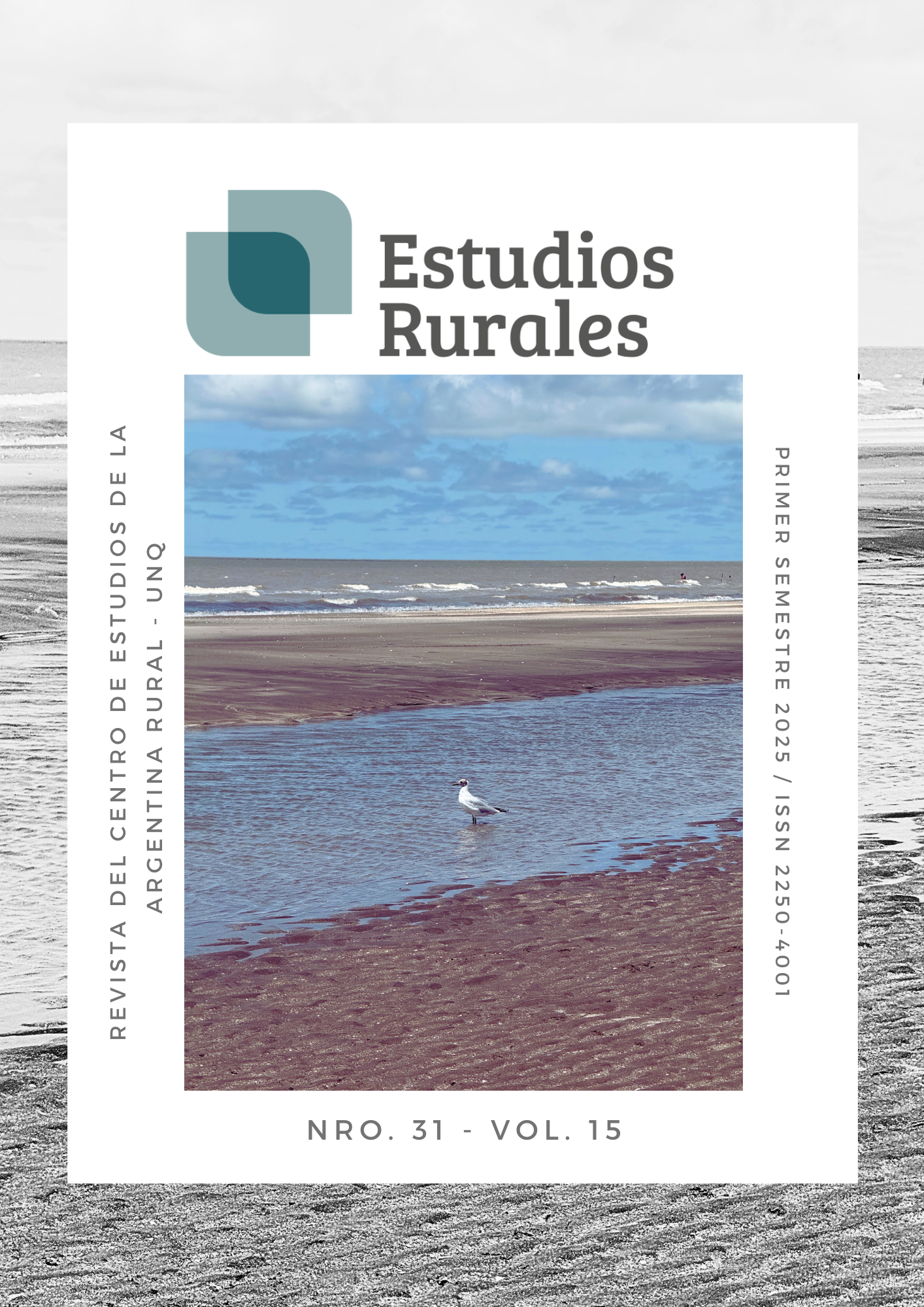“Victims of a clumsy economic policy”.
Discourse and representations of rural leadership during the convertibility crisis (2001-2002).
DOI:
https://doi.org/10.48160/22504001er31.618Keywords:
political discourse, social representations, convertibility crisis, FARERAbstract
The objective of this work is to analyze the political discourse and social representations of a sector of rural leadership based on a set of discursive analysis techniques, in a specific social, economic and political context: the convertibility crisis and the exit devaluation in Argentina (1998-2002). The Federation of Rural Associations of Entre Ríos (FARER) is taken as a study reference.
A series of texts, statements, arguments and representations are revealed as sources with the construction of a corpus of discourses. As an analysis strategy, Deep Content Analysis is adopted from: a- the examination of the internal structure and intentionality; b- the patterns of repetition of words or themes; and c- the rhetorical elements and the marks of subjectivity used. The corpus is composed of materials from the genre "internal communication" (minutes of meetings of the Board of Directors (CD), institutional reports and internal documents) and from the informative genre (newspaper articles collected in the provincial media El Diario).
Some of the conclusions allow us to affirm that FARER's arguments tended to reinforce the discourses historically supported by the Argentine Rural Confederations (CRA), based on a liberal-conservative discursive modality, as well as social representations aimed at shaping images (and beliefs) of the agricultural sector as the driving force of the national economy.
Keywords: political discourse; social representations; convertibility crisis; FARER.


